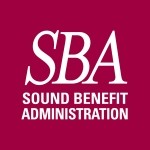For years we’ve been asked a fairly straightforward question: can employers reimburse an employee for their individual insurance premiums? And, based on the mood of the Department of Treasury, our answer has been: yes, no, yes, no, yes, no, yes. But, on January 1, 2020, I’m happy to announce that we have been given an even more generous yes.
Oh boy folks, get ready to eliminate one acronym from your arsenal, “QSEHRA” and replace it with two new acronyms, “ICHRA” and “EBHRA.” This article is addressing the ICHRA, we’ll save the EBHRA (Excepted Benefit HRA) for next month’s newsletter. We’re the alphabet soup experts so this article addresses what’s changed in a nutshell.
You may recall that, effective January 1, 2017, the Qualified Small Employer Health Reimbursement Arrangement (QSEHRA) fixed the Affordable Care Act (ACA) problem of not allowing small employers to reimburse employees for individually owned insurance premiums when there was no group health plan in place. But despite the optimism at the time, the QSEHRA contained numerous limitations which kept it from being a popular solution, including:
- Only available to small businesses with fewer than 50 employees
- Employer can’t offer any group medical plan to any employee
- Annual contribution limits ($5,150 for individual coverage and $10,450 for family coverage in 2019)
To combat the restrictions, effective January 1, 2020, the newly-minted Individual Coverage Health Reimbursement Arrangement (ICHRA) is designed to fix some of the QSEHRA limitations in this way:
- Available to employers of all sizes
- Ability to offer group health coverage to specific classes of employees otherwise within a controlled group
- Ability to offer excepted benefit group health coverage to ICHRA eligible individuals
- No annual contribution limit caps
- Compatible with a Flexible Spending Account (QSEHRA mandated no group health plan offered and an FSA requires a group medical plan be in place)
- Simpler nondiscrimination testing requirements
In order to enroll in an ICHRA:
- An employee must be enrolled in individual health insurance coverage and must be able to verify enrollment
- One caveat: an employer cannot offer ICHRA to the same employees if they are offered another group health plan providing non-excepted benefit coverage to the same class of employees
Here’s how an employer with different classes of employees might use these benefits:
- Employers can divide employees only into specific classes. Permissible classes of employees: Full-time, Part-time, seasonal, collectively bargained, under age 25, new hires within the 90-day waiting period, foreign and work abroad, and working in same rating area
- It’s unclear if these employee classifications are permissible: hourly versus salaried, geographic locations or one collectively bargained group and not to another collectively bargained group.
- The ICHRA must be offered on the same terms to
all employees within the same class
- Exceptions for age, family size, former employees
Providing an opt out option:
- Employers must allow participants to opt out of future reimbursements at least annually because ICHRA coverage can cause individual to be ineligible for premium tax credit
- At termination of employment, the employer must allow opt out or forfeiture
ICHRA can reimburse:
- Premiums/contributions for individual health insurance (no group health coverage, Medicare, TriCare)
- Unreimbursed out-of-pocket medical, dental and vision expenses (Code 213(d))
Claim substantiation:
- An employee must verify enrollment in individual health insurance on a monthly basis
- An employee must provide receipts for all out-of-pocket medical, dental and vision expenses when included in plan
Written election notification:
- An employer must provide written notice to participants at least 90 days before the start of a plan year and no later than the date on which a participant is first eligible.
The ICHRA will be a welcome addition to the alphabet soup family as I believe they will be a good fit for small to medium sized employers. Without a cap, an ICHRA is a good way to reimburse employees for individually owned insurance premiums and out-of-pocket medical, dental and vision expenses. An ICHRA may be a good fit when you want to offer a benefit to part-time employees or different acceptable classes of employees. We’ll be busy telling all our current QSEHRA employer groups the good news that there is no longer an annual cap. I guarantee every single one will be happy about that!
